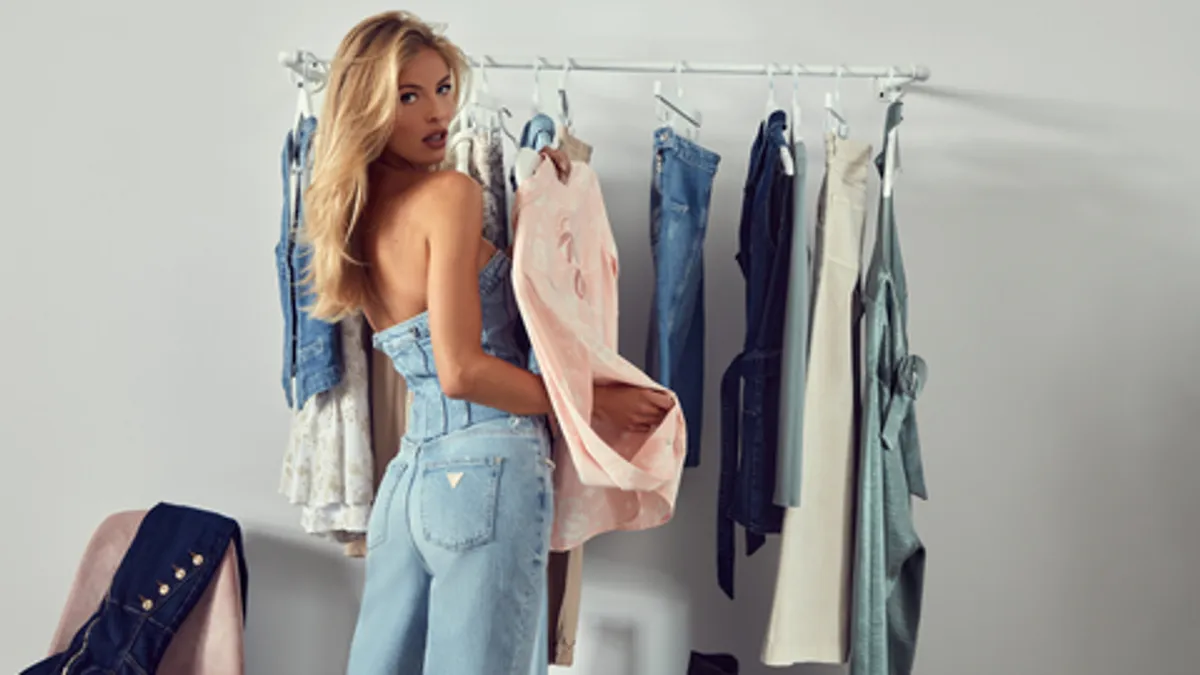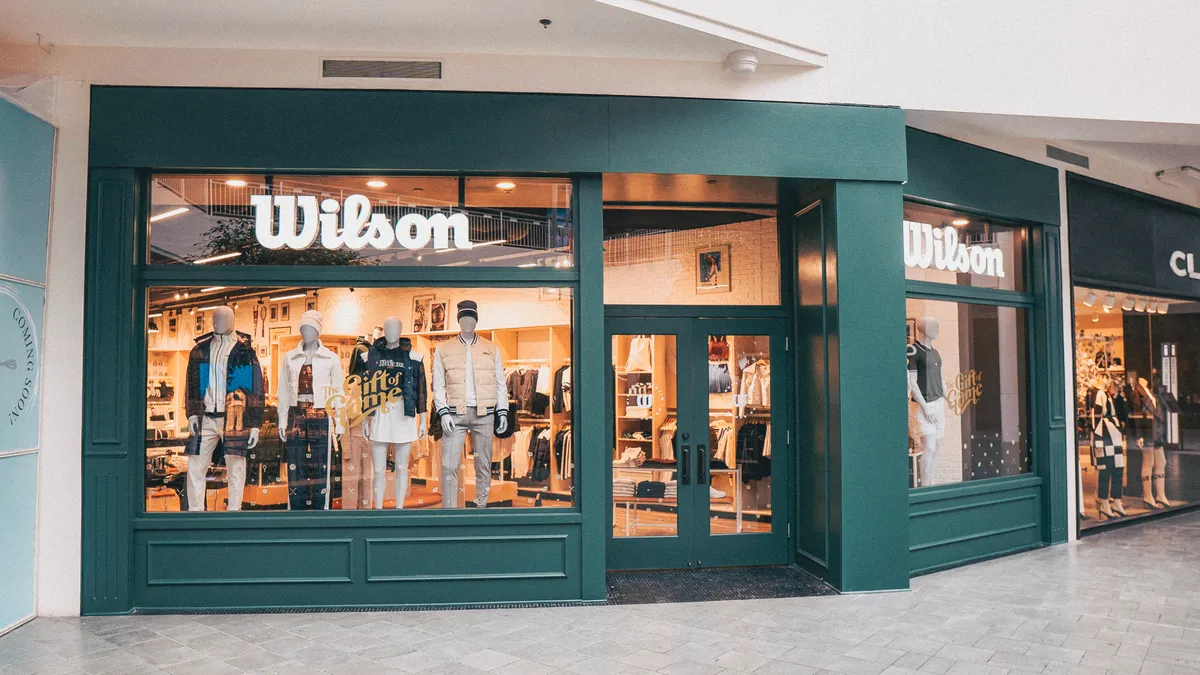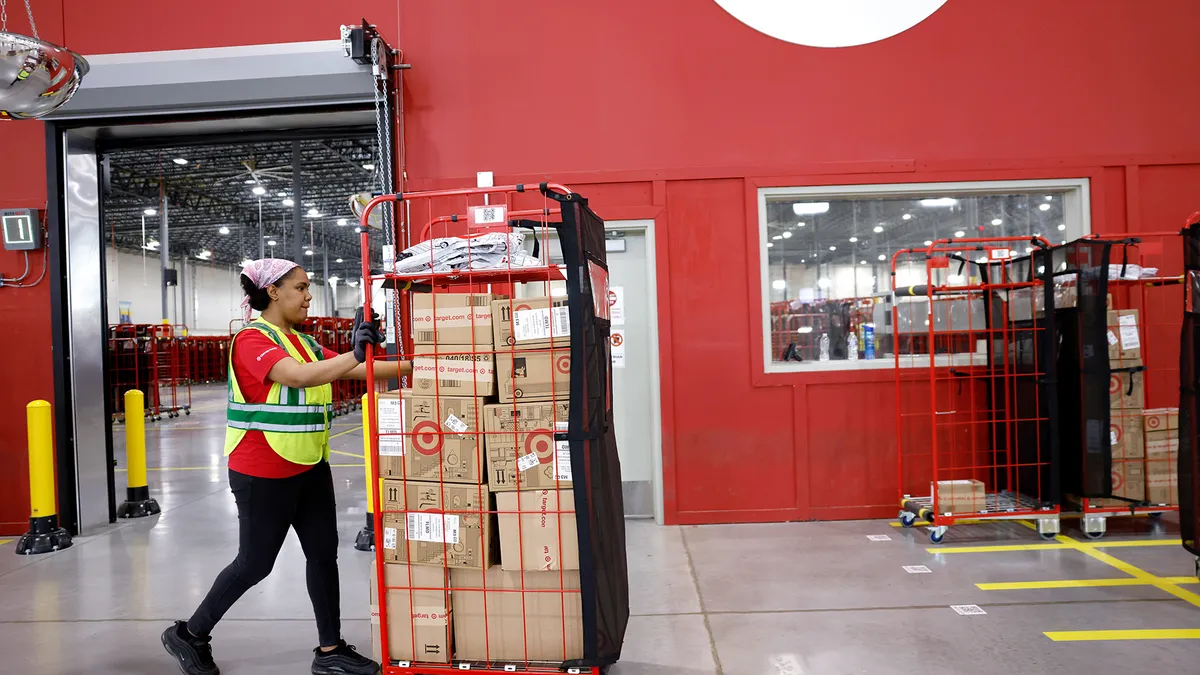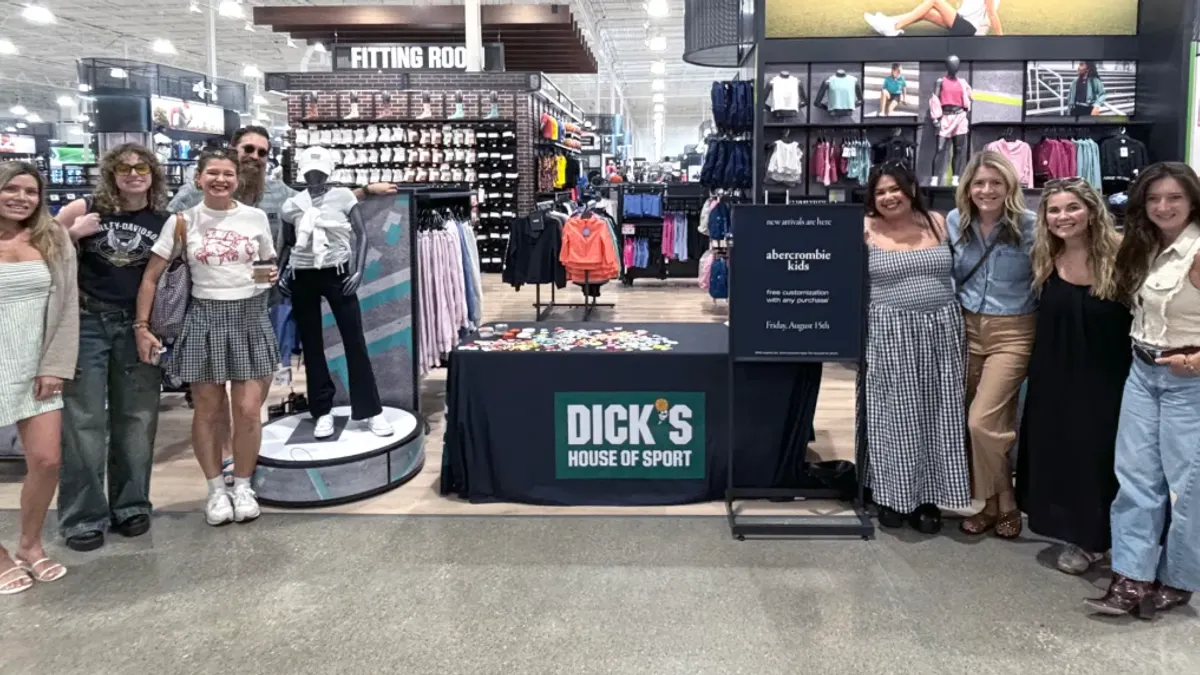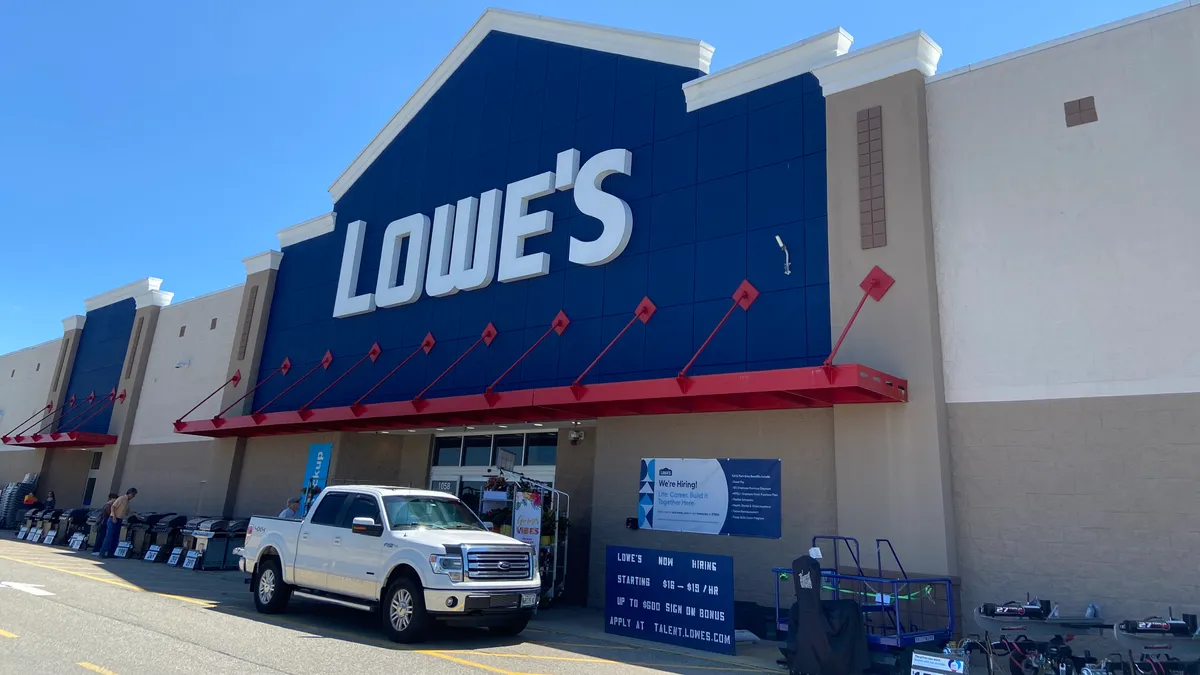If President Donald Trump’s trade war is meant to reshore apparel manufacturing, his immigration raids could make that difficult, if not impossible, by decimating the domestic workforce in the sector.
During recent earnings calls, executives from various department stores and apparel retailers have described how new tariff policies have them scrambling to acquire goods under the lowest possible import duties, negotiating with factories to share the impact and ultimately sourcing fewer goods from China.
Few — if any — say they are working to acquire more clothing made in America.
They wouldn’t have many options if they were. Textile manufacturing has largely moved overseas, ostensibly a reason for the succession of tariffs imposed this year. What’s left of the industry in the U.S. — which, since its beginnings in 19th century New York City, has depended on immigrants — is now centered in Los Angeles.
Textile factories represent the city’s largest manufacturing sector, employing more than 45,000 workers, mostly from Latin America and Asia, according to the advocacy group Garment Worker Center. It’s difficult to know their immigration status, but according to a recent Garment Worker Center survey of 140 respondents, more than 60% are undocumented and just 14% documented, with the rest unwilling to share their status or in the process of getting their papers.
It was no surprise, then, that garment workers were caught up in the U.S. Immigration and Customs Enforcement raids that have sparked protests in Los Angeles. At least 20 workers were detained at two apparel companies, according to a statement in early June from the Garment Worker Center. One of the companies, Ambiance Apparel, didn’t immediately respond to a request for comment. ICE acknowledged receipt of a set of questions by email about whether it is targeting the apparel sector but hasn’t replied.
"With what's going on with ICE and deporting people ... we're going to struggle to try and fill those positions and get companies to actually make apparel here in the States.”

Patrick Penfield
Professor, Syracuse University’s Whitman School of Management
Immigrants have been key to apparel manufacturing because, even with the advent of the sewing machine and other technology, cutting, sewing and finishing requires some amount of hand labor, according to Patrick Penfield, professor of supply chain management at Syracuse University’s Whitman School of Management.
“The pay is very low, it’s difficult, but they don't have to know the language so it typically lends itself to immigrants coming into work,” he said by phone. “But with what's going on with ICE and deporting people, it's going to cause some major issues, not only for apparel manufacturing, but also for food. We're going to struggle to try and fill those positions and get companies to actually make apparel here in the States.”
In a social media post Thursday, Trump seemed to acknowledge that difficulty, at least for food production and hospitality, and hinted at policy adjustments for those industries: “Our great Farmers and people in the Hotel and Leisure business have been stating that our very aggressive policy on immigration is taking very good, long time workers away from them, with those jobs being almost impossible to replace.”
There is now a pause on raids at farms and hospitality businesses, but it’s unclear how that affects garment factories, according to reporting from the New York Times over the weekend. Neither ICE nor the White House immediately responded to questions about whether there has been a change in policy and whether it would apply to the U.S. apparel industry.
Despite some reforms, the low wages and often brutal working conditions of U.S. garment manufacturing hasn’t changed much over the years. What also hasn’t changed is that many immigrants stick with the work in hopes of providing opportunity for their families. Rosa DeLauro, an 82-year-old Connecticut Democrat who is ranking member of the House Appropriations Committee, spoke at a hearing last month about how her mother would bring her to work with her to emphasize the importance of an education.
“She worked in the old sweatshops in the city of New Haven ... and the conditions there were horrific — dangerously hot, unsanitary,” she said. “Mostly immigrant women bent over sewing machines, trying to pump out the dresses as fast as they could, because they're on piece work. You know anything about the needle trades? You get your finger caught in those high-powered machines, you just pull back, you wrap your hand up, because if you get a drop of blood on the garment, you don't get paid for it.”
In a statement earlier this year, the Garment Worker Center called for “smart tariffs tied to labor rights violations, paired with real protections for workers here and abroad,” but otherwise warned that “tariffs alone will not support domestic industries, and, as proposed, they threaten to make it even more difficult for people to do business here.” Most made-in-America brands require components like buttons, zippers, fabrics and specialized equipment constructed abroad, for example.
With some 100,000 garment workers in the U.S., the country has the workforce needed for a thriving apparel industry. But “the assault on our immigrant labor force ... only makes life harder for workers and staying in business that much more difficult for thousands of factories, manufacturers, and brands,” the Garment Worker Center said. Sustaining and growing the industry here would take investment, the group said.
It turns out, though, that returning apparel manufacturing to the U.S. isn’t a priority of the administration or its tariff policy.
"I'm not looking to make T-shirts, to be honest. I'm not looking to make socks. We can do that very well at other locations.”

Donald Trump
President of the United States
“We don't need to necessarily have a booming textile industry,” Treasury Secretary Scott Bessent said at an April press conference. When asked about that, Trump agreed. The White House didn’t immediately return questions about the rationale for tariff hikes on clothing and whether there are concerns immigration raids could impair what there is of the U.S.-based industry.
“We're not looking to make sneakers and T-shirts,” the president told reporters last month. “We want to make military equipment. We want to make big things. We want to ... do the AI thing with the computers and the many, many, many, many elements. But the textile? You know, I'm not looking to make T-shirts, to be honest. I'm not looking to make socks. We can do that very well at other locations.”








